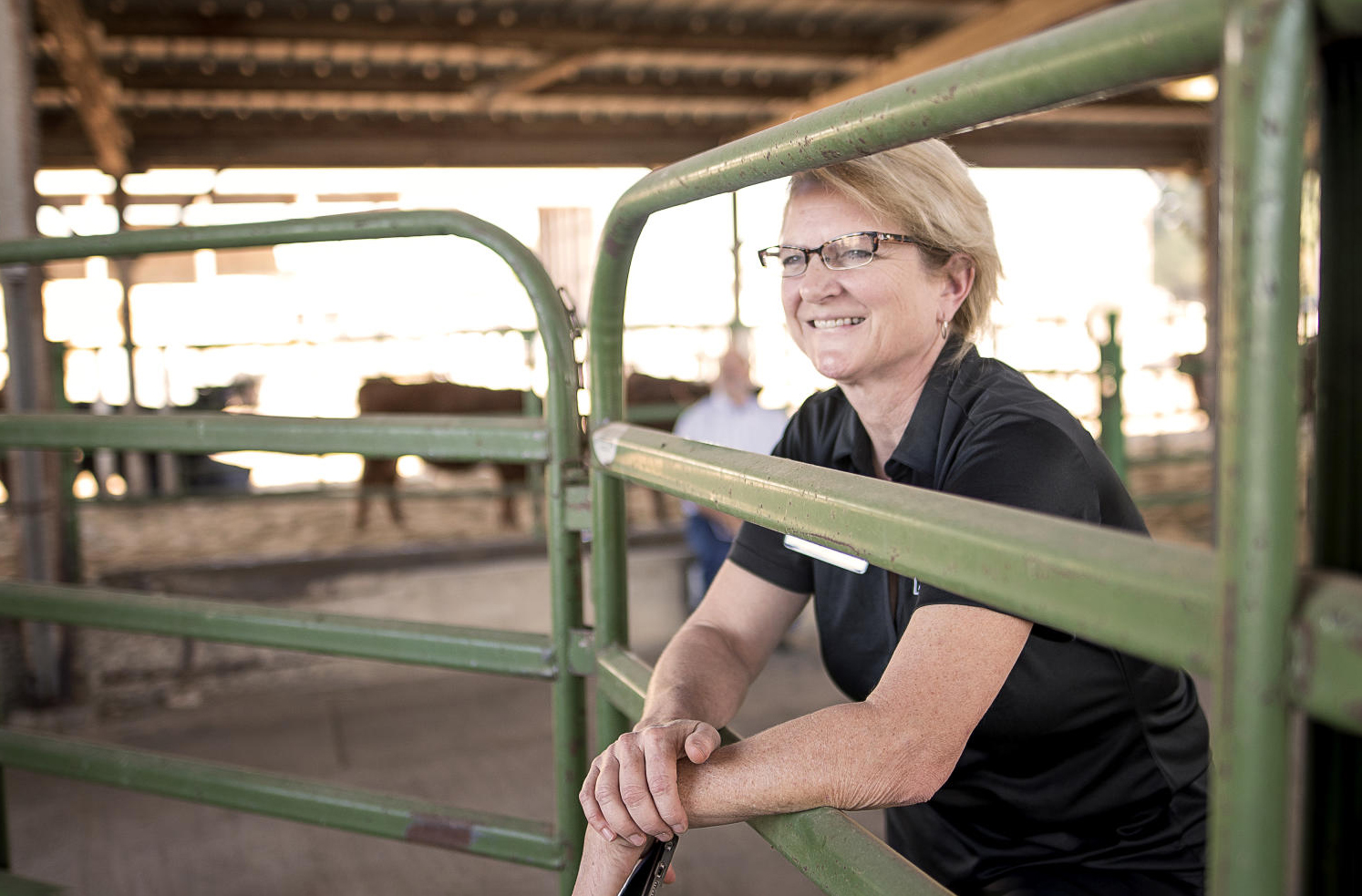Office Hours: Regenerative Agriculture Leader and Professor Cindy Daley

Cindy Daley gives a tour of the farm to the University Advisory Board at the University Farm on Friday, October 27, 2017 in Chico, Calif. (Jessica Bartlett/University Photographer)
Professor Cindy Daley has seen the need to grow the ecological farming movement for decades. That’s what drove the fourth-generation farmer in 2006 to create the University Farm’s Organic Dairy Unit—the first university-based organic dairy program in the West. As her leadership grew, so did her vision. She knows agriculture, when done regeneratively, can be the solution to soil degradation and climate change. That spurred Daley to co-create the Center for Regenerative Agriculture and Resilient Systems (CRARS), which promotes farming practices that reduce greenhouse gasses, restore soil resiliency, increase the sustainability of farms and ranches, and address food and water insecurity. Working with farmers, ranchers, conservationists, and educators around the world to champion this pioneering practice, Daley and her team are transforming agriculture as we know it.
Daley Fact #1:
Her parents are German immigrants and both sides come from multiple generations of hardworking farmers. She likes to say she is “homozygous” for farming genes, meaning she gets it from both sides of her pedigree.
What first sparked your interest in more sustainable agricultural practices?
My passion for production agriculture has always been the spark. Climate change is here: longer and deeper droughts and warmer temperatures are indicators that the time is now and we need to do our part. Reducing our emissions and shifting to a carbon-smart production paradigm will place agriculture in the climate solution category, all while producing nutritious food for humanity.
Why is it imperative for us to rethink agriculture?
Currently, we are considered a part of the problem—we emit 13-17% of all greenhouse gases. With some changes in the way we think and practice, we become a central part of the solution. The data is overwhelming and more than sufficient for the United States Department of Agriculture/ Natural Resources Conservation Service and California Department of Food and Agriculture to invest significant funding to support grower transition to climate-smart agriculture (funding that is designed to remove the financial and social risk of transition).
Daley Fact #2:
Her favorite class to teach is the new professional four-course series in regenerative agriculture, which is attracting technical service providers, farmers, ranchers, and consultants for training in conservation/carbon farm planning and design.
Who is your regenerative agriculture hero (or heroine)?
The farmers and ranchers leading this initiative who are now 10–20 years into a regenerative production model. Check out the CRARS website for our mentor farmers.
Do you practice regenerative farming on an individual scale?
Personally, I’ve shifted to a planned adaptive rotational grazing program on my property, which is strictly rangeland. Building soil health in our rangeland ecosystems will take time, and my focus is adding biological diversity and soil carbon.
What do you consider your greatest professional accomplishment?
Over the last 15 years, we’ve doubled the soil carbon in the pastures dedicated to the University’s dairy. That’s a clear indication that it can be done, and it will leave that resource in a much better condition than when I took over as the unit supervisor in 2006. Good stewardship builds carbon.
Cindy Daley holds a bachelor’s degree in animal science at the University of Illinois and a PhD from the University of California, Davis. She is a professor within the College of Agriculture at Chico State where she also serves as the Rawlins Endowed Professor for Environmental Literacy, supervises and directs the Organic Dairy Program, and is the director for the Center for Regenerative Agriculture & Resilient Systems.


